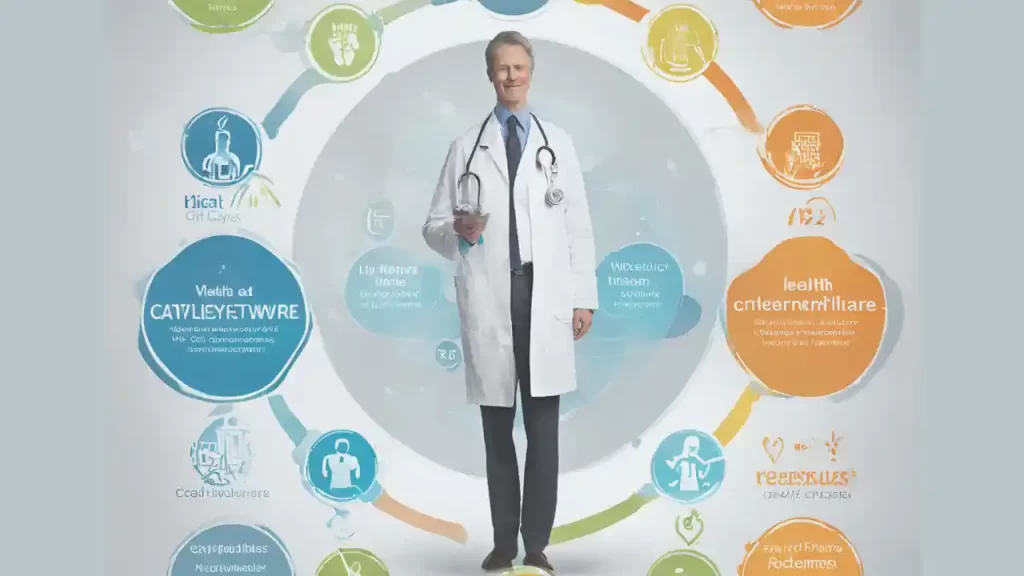Critics of affirmative action have launched a long-shot appeal aimed at stopping California from requiring training on unconscious bias in every continuing medical education class.
A July ruling by a three-judge panel of the 9th U.S. Circuit Court of Appeals upheld California’s right to mandate that every course doctors take to remain licensed must address how bias contributes to poorer health outcomes for racial and ethnic minorities. The ruling against the nonprofit Do No Harm and Los Angeles ophthalmologist Azadeh Khatibi amounts to a victory for California as it fights the Trump administration and right-leaning advocacy and legal groups’ attacks on perceived “wokeness.”
In August, the Pacific Legal Foundation, which represents Do No Harm and Khatibi, asked that a panel of 11 appellate judges reconsider what attorney Caleb Trotter characterized as a “very clearly wrong” decision. Trotter, a senior attorney for the Pacific Legal Foundation, expects the court’s response in October. If the appeal fails, he said, his firm would likely appeal to the U.S. Supreme Court. At stake, legal scholars say, is the latitude of states to prescribe educational content, including health equity training, for licensed professionals.
“The general recent tenor of the Supreme Court’s First Amendment jurisprudence has been very speech protective, so that we would like our odds with, of course, the understanding that any attempt to get the Supreme Court to take your case is a long shot,” Trotter said.
Erwin Chemerinsky, dean of the University of California-Berkeley law school, described the chances of the Supreme Court taking the case as “very unlikely” and the appellate ruling as “clearly correct” in affirming the state’s authority to impose course requirements.
California began requiring implicit-bias training for physicians in 2022. From 2019 through July 2022, five other states enacted legislation mandating the training. California is the only state that requires it to be included in every course involving direct patient care.
In enacting the law, the legislature found that bias contributed to health care disparities and persisted regardless of other factors influencing care. Black women, for example, are often prescribed less pain medication than white women with the same complaints and are three to four times as likely as white women to die of pregnancy-related causes.
Bias does influence clinical care and contribute to health care disparities, a 2022 report concluded. Implicit-bias training, however, might have no impact and might even worsen care, the report noted.
Do No Harm and Khatibi alleged that California’s law violated their First Amendment rights. Khatibi acknowledges that unconscious bias might prejudice how clinicians treat patients. But the Los Angeles ophthalmologist does not believe she should be forced to carve out time to talk about it in a class she might teach on, for example, ocular tumors.
“The government is mandating doctors endorse a specific ideology or priority instead of science,” she said. “I believe government should not mandate or compel the speech of doctors.”
The three-judge appellate panel disagreed. No one is forcing Khatibi to teach state-accredited continuing education, the panel wrote in its opinion affirming a lower court’s decision that the state had the right to mandate the training. The judges found that the curriculum requirement constitutes government speech and, therefore, is not subject to free-speech protections.
The complaint against the California medical board does not dispute the state’s authority to require physicians to learn about unconscious prejudices. Instead, it argues the state has no right to demand that all teachers discuss bias in every continuing medical education class. California physicians must take at least 50 hours of continuing education every two years. Private institutions offer the courses, and physicians generally teach them.
Rep. Sydney Kamlager-Dove (D-Calif.), who wrote the bill when she was a member of the state Assembly, defended it. “By connecting every provider to consistent and evolving training, we can help close these gaps and provide more equitable care,” she said.
The Medical Board of California declined to comment.
Ashutosh Bhagwat, a UC Davis School of Law distinguished professor, said the state has a right to require implicit-bias training, although he disagrees that the training constitutes government speech. He sees it as private, but not compelled, speech because Khatibi and other instructors need only include a discussion of implicit bias if they want their classes to qualify for state licensing credit.
He likened the requirement to that of an accredited private school having to teach math. “Doesn’t matter if you don’t want to teach math. Doesn’t matter if you don’t believe in math,” he said. “You have to teach math.”
Bhagwat sees Khatibi’s case as “very weak.” But he said he could not predict anything the Supreme Court, with its six-justice conservative majority, might do.
“If Khatibi wins in the Supreme Court, or at any level, then chaos reigns because now every single requirement in any licensure that says you must teach this to qualify for continuing education is up for grabs,” he said.
Trotter fears the opposite outcome. If allowed to stand, the implicit-bias training mandate could be extended to continuing education for 50 trades and professions in California alone, he said. “Then all kinds of governments based on all kinds of views can start requiring private speakers to say all kinds of things that, depending on where you are, are going to be controversial in all different kinds of ways,” he said.
While Khatibi’s lawsuit and others like it have had little success in the courts, said Joan Williams, a distinguished professor emerita at UC Law-San Francisco, they have chilled the creation of laws deemed “woke” or those favoring diversity, equity, and inclusion, known as DEI.
“There’s been this huge attack on DEI, and it’s been extraordinarily effective in creating regulatory risk such that people are apprehensive and self-editing because they don’t want to put a target on their backs,” said Williams, who directs the Equality Action Center.
Still, some supporters of bias training say California could refine its approach. Cristina Gonzalez, an internist and a New York University Grossman School of Medicine professor, designs and evaluates interventions to help recognize, prevent, and repair clinicians’ prejudices. She described implicit-bias training as “a science” and California’s approach as misguided because it requires all instructors, regardless of their knowledge of implicit bias, to teach the material.
Finger-wagging and blaming in implicit-bias training can lead doctors to become defensive and avoid patients, but done correctly, by experts, it does work, Gonzalez said. “The messaging has to be, ‘You’re not a bad person,’” she said.
This article was produced by KFF Health News, which publishes California Healthline, an editorially independent service of the California Health Care Foundation.


